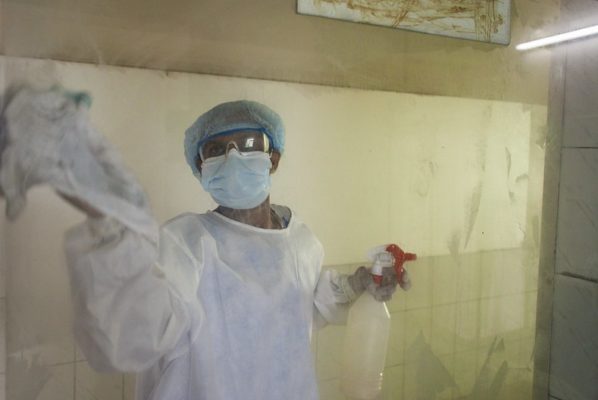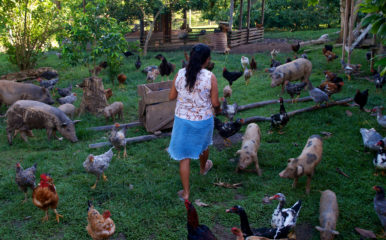
Roadmap Series
Pandemics: managing uncertainty
Published on 14/10/2020
How can risk assessment and preparedness help prevent the next pandemic?

UN Women Asia & the Pacific/Flickr
This event featured panellists Professor Nitish Debnath, of the Fleming Fund Country Grant, DAI, and chair of One Health Bangladesh; and Dr Hayley MacGregor, of the Institute of Development Studies, UK. It was moderated by Professor Dirk Pfeiffer, of City University of Hong Kong, and took place on 14 October 2020.
Watch a recording here:
PANELLISTS' KEY MESSAGES
- Wider socio-economic, political and ecological changes contribute as drivers of pathogen emergence and create a context of global transformations and uncertainty.
- We need better integration of data from different disciplines to better understand the contribution of these drivers to emergence, and also to prepare and respond to epidemics in ways that are acceptable to different populations and are thus more effective.
- There is pressure at the science-policy interface to project certainty and underplay scientific contestation but perhaps we (as scientists) need to be better at communicating uncertainties and at delineating what are political or ethical decisions.
- Considering ethics and social justice in preparedness and response has emerged as a key issue.
- Fostering communication and coordination through a whole-of-government approach by governments and agencies to preparedness and response planning and implementation and a whole-of-society approach to engage communities and civil society.





